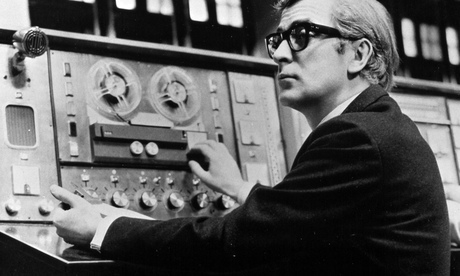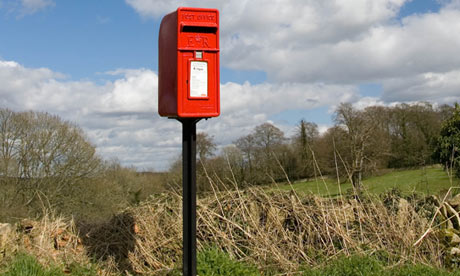John McTernan in The Guardian
What has outsourcing ever done for me?
In a parody of the Monty Python skit from Life of Brian, that is what critics and commentators are asking about the collapse of Carillion – formerly one of the UK’s biggest companies.
The answer – the true answer – is that we should always be grateful that private companies have delivered better public service for less money. And therefore have done three important things for us all.
First and foremost, it has delivered vital public services – and delivered them well. Notice that in the fallout over the collapse of Carillion few questioned the quality of what it has been doing in the public realm. From the NHS to HS2 the company’s record of delivery is positive.
Second, the company has taken risk out of the public sector and absorbed it themselves. It is one of the oldest criticism of public private partnerships that the transfer of risks is never achieved properly – profits, we are told sanctimoniously, are privatised, while risk remains nationalised. In the case of Carillion we can see that is utterly and demonstrably false. How? In the simplest possible way – the company has gone bust. There can be no starker demonstration that risk has been fully transferred than to see it crystallise – which has just happened.
And last, but not least, we have had a bargain – we have paid substantially less for services than they cost to deliver. How can we be sure about that? Again, it is the collapse that is the proof. If the directors had driven exploitative bargains with the public sector then they would be driving round in Maseratis rather than polishing their CVs and wondering how to explain their catastrophic failure to future prospective employers. Saving money in the provision of public services is a good thing. On the one hand, there are always too many demands to answer. On the other, at a time when the public books still have a massive overhang of debt following the Great Recession, every little bit of efficiency helps.
The problem is that we are all a little squeamish. Companies going out of business is part and parcel of how capitalism works – it is essential that there is both creativity and destruction. For individual workers whose pay and pensions depend on the continued success of the company that is disruptive.
But where public services are being delivered, government is continuing to underwrite employment and contracts will be taken over by another provider – public or private. This is, remember, the tightest labour market since the mid-70s. There is no reserve army of labour to take over these jobs at a lower price. After some turbulence, things will settle down again. Shareholders will have lost a lot of money. And senior managers will have lost jobs. Forgive me for not weeping over either of those facts.
The alternative is worse. Far worse. It is that repeated failure is bailed out – and, in effect, rewarded rather than punished. What does that look like? The life of the average government department. Millions of people are being immiserated by the failures of universal credit (UC). And this is not because of flaws in the new system but because of features of the new benefit. UC is failing and the only people paying the price are hard-working families who can least afford it.
The same is true of the Home Office. If the same combination of malignity, incompetence and out-and-out racism was being demonstrated by any private company it would not only be in court repeatedly, it would be bust. As it should be. The lack of contestability and accountability in direct government provision of services is a huge problem. Having a small amount of it brought into the system by contracting out is a powerful public good.
Will miracles never cease? I learnt yesterday that there is a team of officials in the Cabinet Office known as the Nudge Unit, charged with suggesting “ways people can make small changes to improve their lives”. Naturally, this sent the taxpayer in me into a lather of indignation. No wonder the national debt is so mountainous if crackpot initiatives like this are given the green light in Whitehall.
But then, wonder of wonders, out of the Behavioural Insights Team, as it is formally known, emerged common sense so beautiful and bracing that it was like being nudged by Marilyn Monroe.
Suppose, asks Prof Paul Dolan of the London School of Economics, a former stalwart of the unit, a man who nudges for England, happiness is not owning the latest, smartest mobile phone, but is, in fact, having that phone switched off? Suppose silence truly is golden, a necessary antidote to a shrill, intrusive world?
The problem with smartphones, warns Dolan, an expert on happiness, is that they distract users’ attention from the people around them. “Turning your phone off and enjoying being with your friends is much better for you than constantly checking your phone and emails,” he told an audience at the Hay Festival in Cartagena, Colombia.
What? Enjoy the company of your friends when you could be reading tweets from Wayne Rooney or perusing the weather forecast in New York? The professor is flying so much in the face of fashionable opinion that, the next time he switches on his mobile, he may find he has been denounced as a fascist Luddite by the Twitterati.
But he is hardly a lone voice. He is only articulating something that millions share: a vague sense that our super-connected world is also dangerously disconnected from things that matter.
Switching off your mobile can improve your emotional health – as I found from personal experience last year. I was travelling in the States, left my mobile phone at the hotel and, for the next two hours, felt anxious and disorientated. Suppose something happened to my loved ones? Suppose so-and-so needed to get hold of me? What was happening at the Oval? All the usual neuroses of the middle-aged male.
But then, as sanity returned, the feelings of anxiety abated. After four hours of being cut off from what I had come to regard as civilisation, I felt as relaxed as if I’d had a particularly good lunch. After six hours, I was in such a happy space that, when I finally got back to the hotel and was reunited with my phone, I felt not relief, but resentment. Did my life have to revolve around that little electronic tyrant? Couldn’t its biddings wait?
The next day, and for the following five days, I left my phone in the hotel and resolved to check my messages no more than once a day. If I was late receiving some genuinely urgent communication, so be it.
The result was as dramatic as it was heartening. Until you sever your links with the people you are in touch with 24/7, you don’t realise quite how stressful those links are; quite how much energy you expend fretting about the contents of emails you have or have not received; quite how many footling demands other people will make on your time, if you are stupid enough to let them.
Liberated from those demands, I found myself paying closer attention to the world around me: enjoying the sights and sounds of America, and having conversations that felt like real conversations, flowing easily and sweetly, at no risk of being interrupted by the beep of a phone. It felt like an epiphany, an unexpected reversion to a better, simpler lifestyle.
Prof Dolan, guru of contentment and distinguished graduate of the Nudge Unit, has clearly had similar epiphanies. His plea for reduced dependency on mobile phones throws down the gauntlet to a generation that, in its fascination with new technology, has got its priorities askew.
One of the defining images of the 21st century is rows of men in suits on aeroplanes switching on their phones within nanoseconds of their planes landing. They have mistaken ergonomic efficiency for coolness: they think they are demonstrating energy and dynamism. They cannot see how pathetic they look, clutching at the umbilical cord that links them to their bosses/girlfriends/bookmakers.
The next time they land at Heathrow, they should try waiting five minutes before switching on their mobiles. Then 10 minutes. Then 20. It could be the saving of them.









 16 Comments
16 Comments